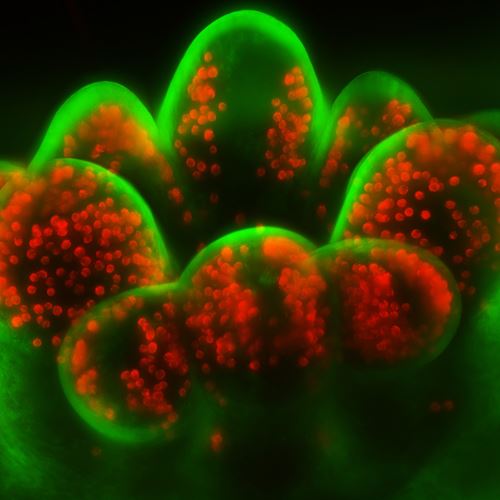Insight: Could this wheat help feed the planet?
A collaborative GM wheat trial is testing plants developed at Essex which produce higher yields.
-
Tagged under
Environment and sustainability
-
Lead Academics
Professor Christine Raines
Professor Tracy Lawson
With the world’s population predicted to hit nine billion by 2050, the challenge of feeding the planet is a major challenge.
To meet demand, food production needs to increase by 40% in the next 20 years and 70% by 2050.
But how is this possible when wheat yields have reached a plateau for the past 30 years?
Essex has an international reputation for innovation and excellence in photosynthesis − the process that enables plants to harvest energy from the sun and convert it to products for food and fuel.
We need to find ways to increase wheat yields and our researchers are working on various national and international research projects to engineer improved photosynthesis to help tackle this complex problem.
“There is now evidence that improving the efficiency of photosynthesis by genetic modification is one of the promising approaches to achieve higher wheat yield potential," explained Professor Christine Raines, from the School of Life Sciences at Essex..
"Essex gave me the freedom and support to pursue my research interests and appointed colleagues that allowed us to build a photosynthesis research team that positioned Essex to become the international leader it is today."
From lab to reality – our GM crop trials begin
In glasshouse laboratory conditions we have developed wheat plants that can carry out photosynthesis more efficiently, resulting in a higher crop yield of between 20-40%
Into the real world
The next step is field trials and we are collaborating with Rothamsted Research and Lancaster University to run field trails with GM wheat plants after gaining approval from the Department for Environment, Food and Rural Affairs (DEFRA).
Taking place on Rothamsted Farm over the next two years, the GM trials will evaluate the performance of the engineered plants in the field.
“These field trials are the only way to assess the viability of a solution that can bring economic benefits to farmers, returns to the UK tax payer from the long-term investment in this research, benefits to the UK economy as a whole and the environment in general,“


